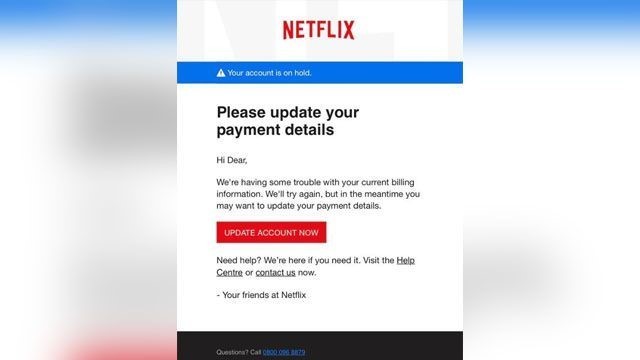Phishing Scams and How to Recognize Them
Scammers use email or text messages called phishing scams to trick you into giving them your personal information. They may try to steal your passwords, account numbers, or Social Security numbers. If they get that information, they could gain access to your email, bank, or other accounts. Scammers launch thousands of phishing attacks like these every day — and they are often successful. The FBI’s Internet Crime Complaint Center reported that people lost $57 million to phishing schemes in one year!
Scammers often update their tactics, but there are some signs that will help you recognize a phishing email or text message.
Phishing emails and text messages may look like they are from a company you know or trust. They may look like they are from a bank, a credit card company, a social networking site, an online payment website or app, or an online store.
Phishing emails and text messages often tell a story to trick you into clicking on a link or opening an attachment. They may
say they have noticed some suspicious activity or log-in attempts.
claim there is a problem with your account or your payment information.
say you must confirm some personal information.
include a fake invoice.
want you to click on a link to make a payment.
say you are eligible to register for a government refund.
offer a coupon for free stuff.

Here is a real-world example of a phishing email.
Imagine you saw this in your inbox. Do you see any signs that it is a scam? Let us take a look.
The email looks like it is from a company you may know and trust: Netflix. It even uses a Netflix logo and header.
The email says your account is on hold because of a billing problem.
The email has a generic greeting, “Hi Dear.” If you have an account with the business, it probably would not use a generic greeting like this.
The email invites you to click on a link to update your payment details.
While, at a glance, this email might look real, it’s not. The scammers who send emails like this one do not have anything to do with the companies they pretend to be. Phishing emails can have real consequences for people who give scammers their information. And they can harm the reputation of the companies they are spoofing.
Tags: Phishing, scam